Mr. Parsons Goes Postal for Pratchett

Full Disclosure: This reviewer is a pretty avid reader of Terry Pratchett’s books.
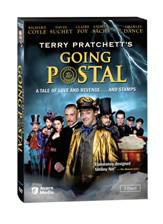 Going Postal is the 33rd entry in Terry Pratchett’s Discworld book series and the seventh teleplay adaptation of the overall series. Do not let these numbers deter you; this is a stand-alone story in the book series and originally aired in the U.K. as a Sky One mini-series. You see, while all of the Discworld tales are interconnected they aren’t necessarily serial or even sequential. One of the more interesting aspects of the overall story-line is that while the book Going Postal was published some years before the recent credit crunch and ensuing financial crises, the story kernel consists of an undercurrent of greed and profiteering and the ensuing results. Despite the setting of the film, you will find many aspects of Going Postal are completely modern in context. Finally, I imagine that many of you are already cringing about the fact that a book has been translated into a movie. That hardly ever works out as planned, apparently. Fortunately, not only has the author collaborated on the teleplay, he also has a cameo in the film.
Going Postal is the 33rd entry in Terry Pratchett’s Discworld book series and the seventh teleplay adaptation of the overall series. Do not let these numbers deter you; this is a stand-alone story in the book series and originally aired in the U.K. as a Sky One mini-series. You see, while all of the Discworld tales are interconnected they aren’t necessarily serial or even sequential. One of the more interesting aspects of the overall story-line is that while the book Going Postal was published some years before the recent credit crunch and ensuing financial crises, the story kernel consists of an undercurrent of greed and profiteering and the ensuing results. Despite the setting of the film, you will find many aspects of Going Postal are completely modern in context. Finally, I imagine that many of you are already cringing about the fact that a book has been translated into a movie. That hardly ever works out as planned, apparently. Fortunately, not only has the author collaborated on the teleplay, he also has a cameo in the film.
The story takes place, as I have mentioned, on the fabled Discworld and finds our hero, Moist Von Lipwig (Richard Coyle), awaiting execution by hanging on over 150,000 dollars worth of fraud. And those are just the charges that can be proven. Von Lipwig is the “bad guy who doesn’t know he’s bad” with the kind of moral ambiguity that would make any businessman or politician proud. After receiving, literally, a new lease on life under the auspices of an offer he can’t refuse, Mr. Lipwig is “adjured” by Ankh-Morpork’s Patrician, Havelock Vetinari (Charles Dance), to revive the long fossilized postal service by taking up the position of Postmaster.
The Post Office’s main competition is a kind of “wireless optical” service called the Clacks. The Clacks is probably what would have happened if Charles Babbage designed the internet and is run by the ruthless and cynically enterprising Reacher Gilt (David Suchet). The new Postmaster finds himself faced with not only reviving the post office but also somehow delivering thousands of unsent letters and parcels aided, so to speak, by his well-meaning but somewhat hapless post office staff of two and a well-meaning but quite literal minded golem. The competition between the Post and the Clacks heats up by way of ever more flamboyant one-upmanship between Lipwig and Gilt. All the while, the reluctant Von Lipwig faces fires, assassins, letters with a mind of their own and the ramifications and repercussions of his former career as a con-man including the fact that the person Von Lipwig wants and needs the most as his closest ally has the most reasons to be his nemesis.
The overall design of the film, much like it’s predecessors The Colour of Magic and Hogfather, is largely a Victorian England period piece with flavors of Georgian and Edwardian along with a sprinkling of mediaeval Europe which delivers a pretty amazing array of costume, prop and set pieces. Ultimately it is in the Victorian age only instead of gunpowder and steam it’s crossbows and magic. Having a television budget has taken nothing away from the production or the story, in fact it could be argued that television is a better venue for this particular piece as far too much would be lost in the compression of the story arc for sake of cinema timing.
There are certainly some differences between the teleplay and the book, only you will not notice them if you’ve not read Going Postal. In fact, even if you’ve read the book there are several things that are missing that you won’t notice (unless you happen to have finished the book right before watching the movie or have read Going Postal several times). The story certainly stands on it’s own and, as I stated above, having no prior knowledge of Terry Pratchett’s work will not hamper your viewing of this production.
“Star studded cast” is, often, an overwrought cliché, only in this case it is a completely appropriate and even necessary use of the phrase. If you’ve watched any U.K. television production in the last 30 years you will readily recognize most, if not all, of the actors by name if not appearance. As a reader of Terry Pratchett’s books, I found the portrayal of the characters to be almost completely dead on with very few exceptions. This can obviously be attributed to Sir Terry’s direct involvement with the production.
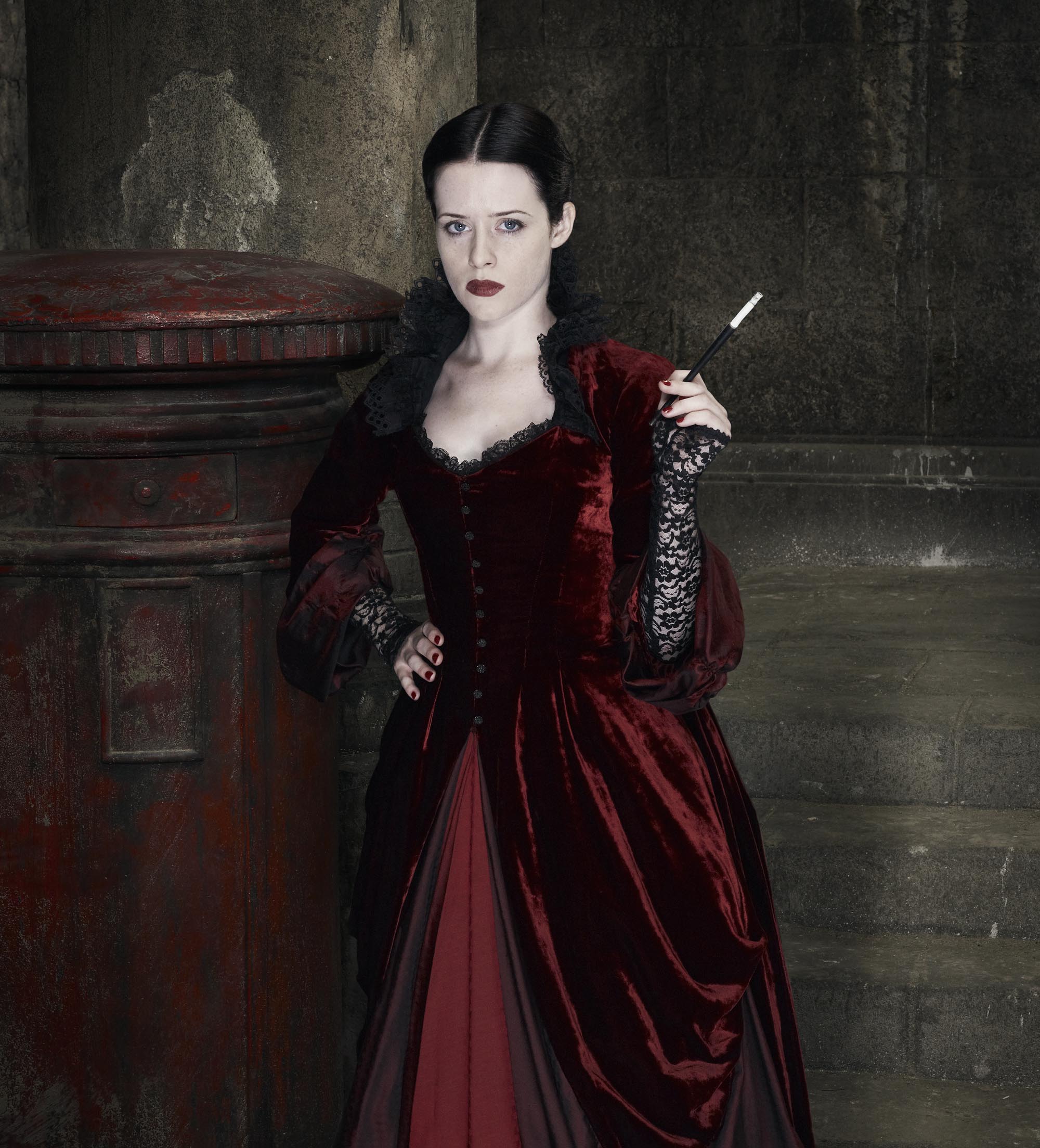 The bonus features represent typical fare of such things. Unfortunately, there are no special features about the visual effects in the film and there is a slightly annoying re-use of the same shots throughout the cast and crew interviews. I do like the fact that all of the principal actors were interviewed and it was fun to see some of the actor’s confessions of never having read a Terry Pratchett book before embarking on the project. There were only one or two deleted scenes that provided any substantial exposition or continuity, otherwise the scenes were just longer versions of what was already in the film. The blooper reel was, again, pretty typical of such things: set-piece malfunctions, flubbed lines and lots and lots of giggling. It is still fun to watch especially if you are familiar with any of the actor’s work prior to Going Postal. Three fans of the Discworld books who were extras in the movie were interviewed as well and demonstrates why Terry Pratchett is so well liked.
The bonus features represent typical fare of such things. Unfortunately, there are no special features about the visual effects in the film and there is a slightly annoying re-use of the same shots throughout the cast and crew interviews. I do like the fact that all of the principal actors were interviewed and it was fun to see some of the actor’s confessions of never having read a Terry Pratchett book before embarking on the project. There were only one or two deleted scenes that provided any substantial exposition or continuity, otherwise the scenes were just longer versions of what was already in the film. The blooper reel was, again, pretty typical of such things: set-piece malfunctions, flubbed lines and lots and lots of giggling. It is still fun to watch especially if you are familiar with any of the actor’s work prior to Going Postal. Three fans of the Discworld books who were extras in the movie were interviewed as well and demonstrates why Terry Pratchett is so well liked.
The highlight of the special features was an introduction by Terry Pratchett on the first disc and an interview on the second disc. It’s always nice to hear an author’s insight into what they were writing and why. The features with Sir Terry weren’t overly long; however, the context he provides for the film and his, for lack of a better word, immersion he has in all of his stories is well worth watching.
Lastly, the director’s commentary was consistent and informative. There were anecdotes and “What we were looking for here”’s along with, again, the standard fare of most director’s commentaries without the stream of consciousness or protracted silences you may encounter in other commentaries (cough Tim Burton cough).
Going Postal is an easily accessible movie for most age ranges and tastes. There’s a little bit of everything here. Magic, monsters, adventure, a “great race”, comedy, tragedy, satire, farce; it runs a wide range of emotional styles and couplings and pulls off most of them effectively. The movie’s greatest asset is that it runs long enough that all of those attributes don’t turn into a sensory-overload inducing wreck. Unfortunately, that long run time of just over three hours makes it a movie you want to start watching earlier in the evening if you have younger children and want to see the whole thing in one go. However, the film is split into two parts and there is the choice of “play all” or “part 1”, “part 2”.
Recommended. Four out of five stars.
Distributed by Acorn Media Group. Approximately 185 minutes, plus 67 minutes bonus features – SDH subtitles.
Blu-Ray Single (SRP: $39.99) / DVD 2-Disc Boxed Set (SRP: $39.99)

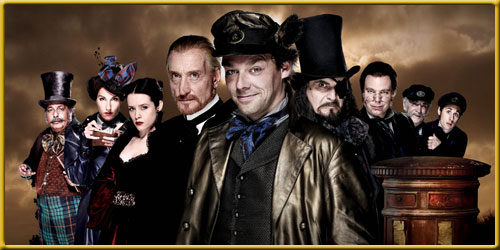
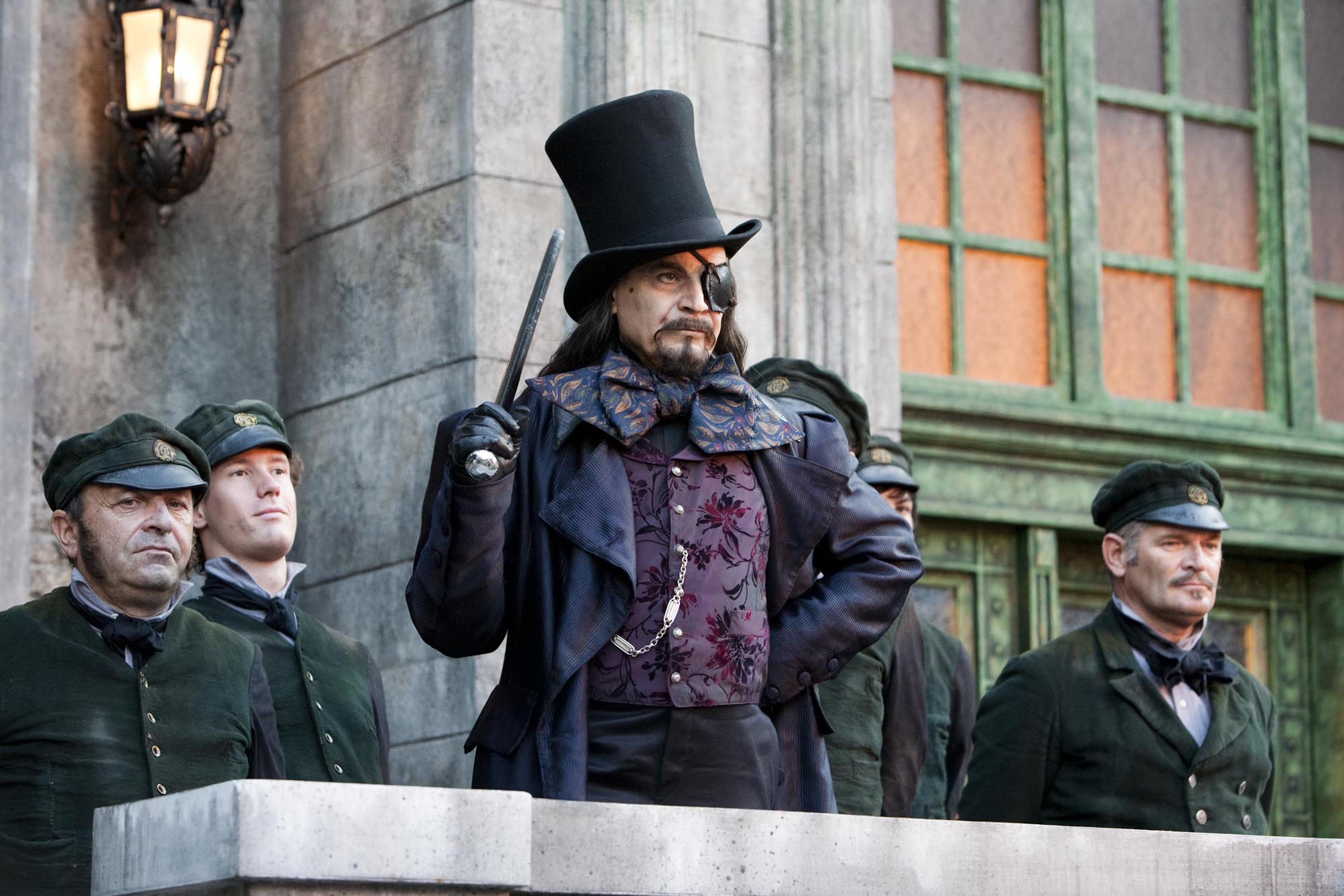
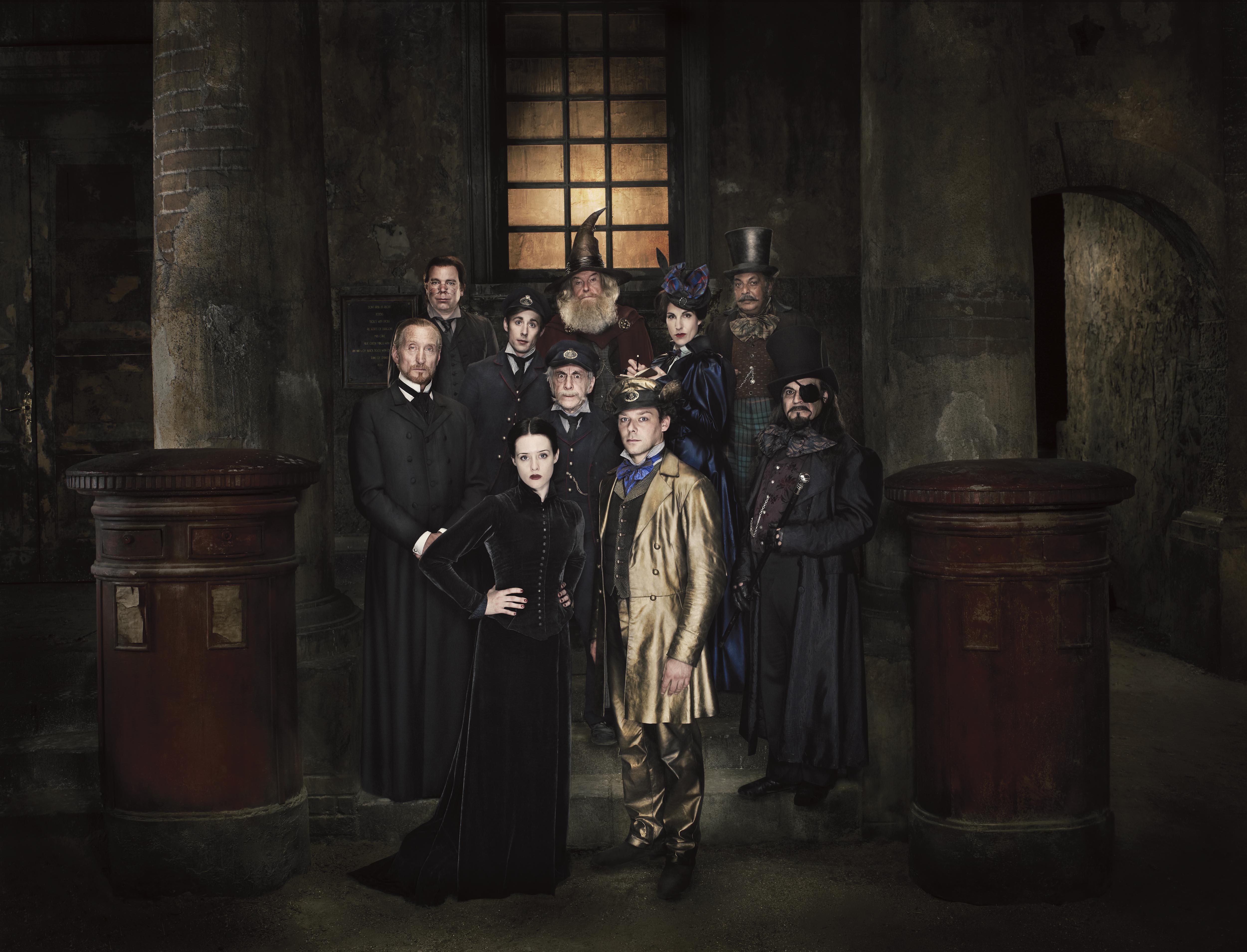


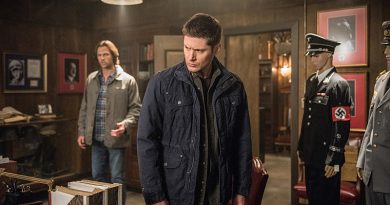
2 thoughts on “Mr. Parsons Goes Postal for Pratchett”